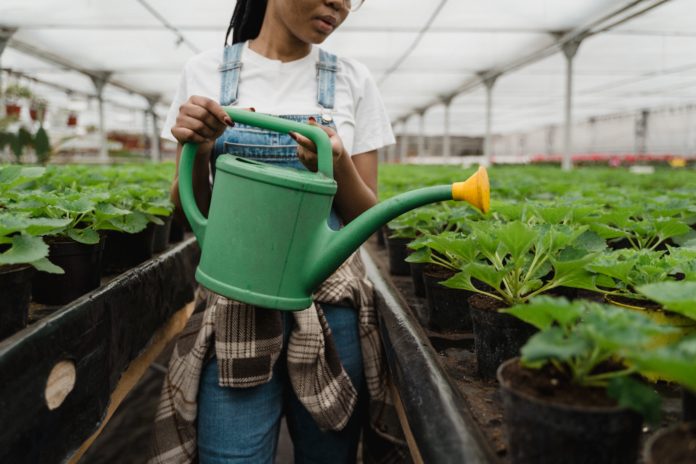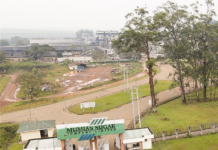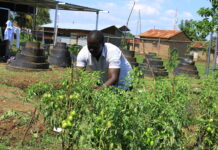By Clifford Akumu
Nairobi, Kenya: Creating awareness and responsible use of pesticides is key in protecting smallholder farmers from harm, regulators have said.
The regulators, led by the Agrochemical Association of Kenya, Ministry of Agriculture, Pest Control Products Board (PCPB), and county governments are training spray service providers and agrochemical dealers to deal with misuse of pesticides.
Mr. Okisegere Ojepat, Chief Executive Officer, Fresh Produce Consortium of Kenya stressed the need to partner with county governments, development partners, and the agrochemical industry in educating farmers on the impact of using spray service providers in identifying and diagnosing pests or diseases.

“Two weeks ago I attended the graduation of about 58 spray service providers in Vihiga County. These men and women will now complement the services of extension officers in enhancing plant protection services,” said Ojepat during an agricultural workshop convened by Science Africa in Nairobi recently.
The number of interceptions in the international market of Kenya’s export products will also increase if there will be a stop in the use of the plant pest control products, Ojepat added.
Kenya is currently on 10 percent surveillance on its exported beans and yet it still uses plant protection products. If the country stops use, continued Ojepat, Kenya would not export products like chili that is heavily affected by false codling moth-a a quarantine pest in the European Union.
“I cannot imagine Kenya without plant protection products. What we need to do, is to educate the masses. Can you also imagine Kenya not using any of the pharmaceutical products which are also manufactured by some of the same companies?” said Mr. Ojepat.
Mr. Ojepat added that ‘banning pesticides blindly’ will lead to a loss of revenue from horticulture which currently stands at Kshs150 billion in earnings. “We can never stop using plant protection products,” said Ojepat.
A petition was launched in the National Assembly seeking a total ban on agrochemicals that have been banned in the European Union. The petition noted that some pesticides are classified as carcinogenic (24 products), mutagenic (24 products), endocrine disrupter (35 products), and neurotoxin (140 products).
The stakeholders noted that a ban on some of the pesticides locally, without science and facts, will stall crop production.
“Pests and diseases account for 40-100 percent losses depending on the pests that are attached to the crop,” said Eric Kimunguyi, the Agrochemical Association of Kenya (AAK) CEO.
“Kenya will be a net importer of food. The export market too will die. There will be a high disease burden as a result of no food to feed on. We will also lack indoor residual sprays or aerosols that control mosquitos leading to public health menace such as malaria incidences,” added Kimunguyi.
Kimunguyi said that Kenya is a country with diverse tropical conditions of temperatures between 20-30 degrees Celsius which allows pests to prevail hence using crop protection products is inevitable.

Kenya has suffered various pests’ attacks on crops and other plants leading to yield losses, thus threatening food security. The fall armyworm, Tuta absoluta, and the latest locust invasions could have caused a catastrophe without any interventions.
“We can no longer stop the use of plant protection products, as long as we live in the tropics. Pesticides are meant to be toxic. If not used well, they have side effects. But if well used it is a very important tool in farming,” said Dr. Paul Ngaruiya, acting general manager research, strategy, and planning Pest Control Products Board.
A ban on pesticides, therefore, said Okisegere Ojepat Chief Executive Officer (CEO) Fresh Produce Consortium of Kenya, “Will make over 40 percent of the country’s current production to literally crash”
He said banning the said molecules will hinder the country from exporting noting that, “literally everything we export today, somehow we are using plant protection products, however minimal they are. Banning 262 molecules means that Kenya’s export will crash,” said Ojepat.
“We will be a net importer of most of the foods that we eat because currently, we are already food insufficient. Did you know, for example, that 98 percent of the pineapples consumed in the country are imported? And that we still import some pesticide products from Tanzania?”
Ojepat further urged the government to allocate sufficient funds and resources to crop protection bodies to enable them to develop robust systems.
“Treasury needs to empower the PCPB by increasing their budget allocation to enable them to undertake research and develop systems. On one side the parliament is putting pressure on the regulator and on the other they are not allocating the money to do their work” said Ojepat
He challenged farmers to embrace fruit tree farming to help deal with the effects of climate change.
But where did the rain start beating us? The time extension services across the country broke down was our undoing in terms of the plant protection sector.
“We need to revive extension services to boost awareness creation on pesticide use,” said Dr. Ngaruiya.
Dr. Ngaruiya assured the public that PCPB has put strict measures to ensure that all pesticides are safe for use and in line with the policies required by the pesticide industry.
He added that the board is making more follow-ups on regulatory issues because fraudsters are coming up with new ways to pave their way through the pesticide market with counterfeit trade alone resulting in between 100-120 million losses annually in the country.
Agro-chemical counterfeit products stand at between 15-20 percent according to figures from AAK.
“We have our inspectors who go round, if they find any product without a label, then they cease the product. The label has to be approved by the board, we compare the data that we have in our systems and once we are satisfied that the information is accurate then we approve the product,” Dr. Ngaruiya said.














